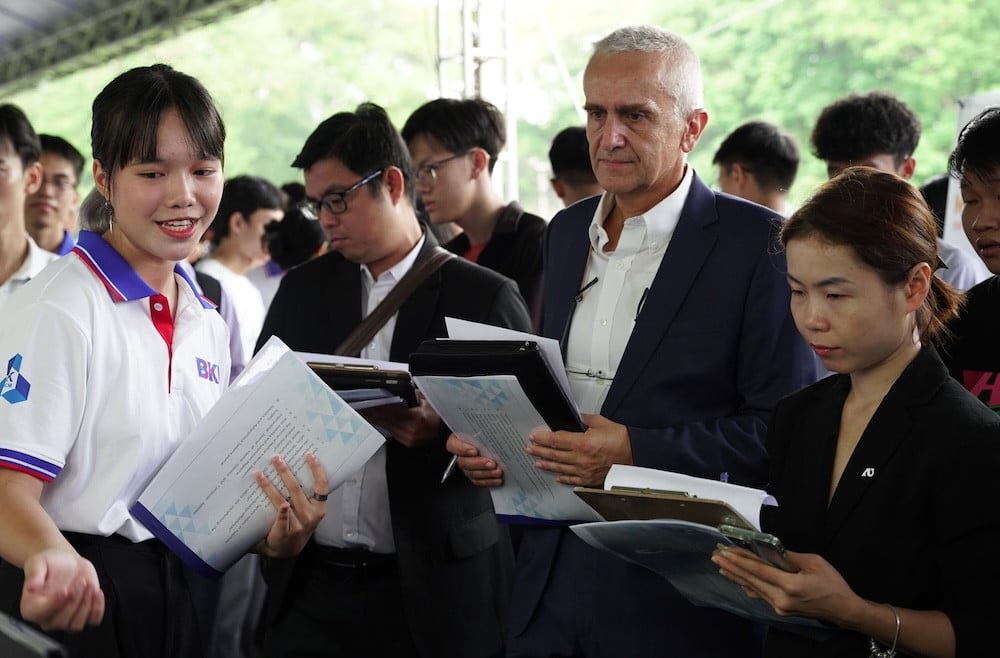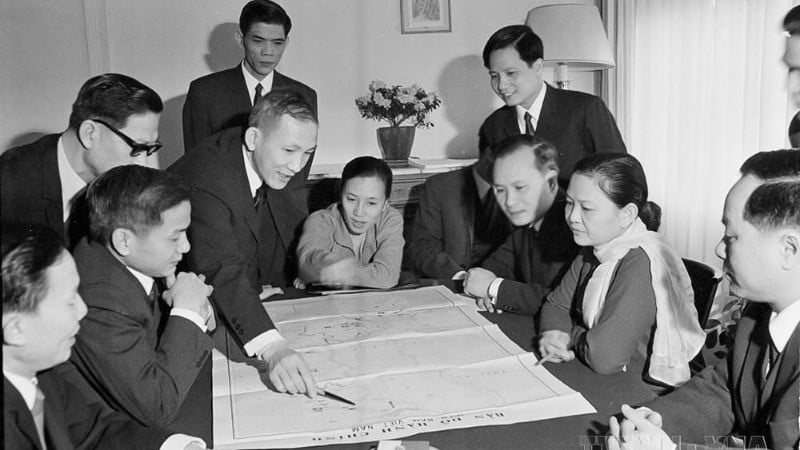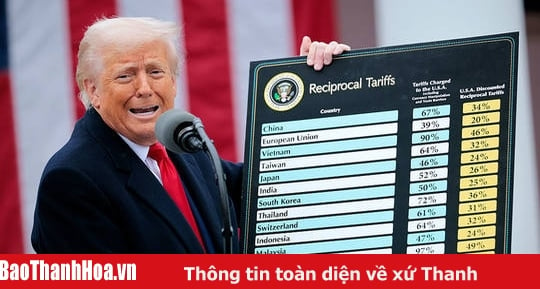The implementation of the salary regime according to job position from July 1, 2024 is attracting special attention from cadres, civil servants, public employees and workers.
In recent years, the salaries of officials, civil servants and public employees have been calculated according to a common formula: salary coefficient x basic salary. There are many different salary levels, the longer you work, the higher your salary will be (every 3 years, the salary level will be increased). At the same time, salary is also calculated according to qualifications (university graduates will always have a starting salary coefficient of 2.34).

XIII National Assembly member Bui Thi An said that the current salary payment method is considered to be "equalizing" and does not properly evaluate capacity (Illustration photo).
Sharing with Nguoi Dua Tin, XIII National Assembly member Bui Thi An said that the current salary payment method is considered to be "leveling", not properly assessing the capacity and position of cadres, civil servants and public employees; not creating motivation for those who are truly talented, nor encouraging and attracting good people to work in state agencies and public service units.
According to Ms. Bui Thi An, paying salary according to job position is a breakthrough, if we can accurately define job positions, it will create social justice. “As I understand it, a job position is a job or task associated with a corresponding job title or management position. Thus, each industry will have a number of job positions, each job position has its own specific salary level according to the complexity of the job. However, there are job positions that are extremely difficult to define the “standard”, how can it be accurate?”, Ms. Bui Thi An wondered.
Speaking with Nguoi Dua Tin reporter, Mr. Le Dinh Quang - Deputy Head of the Legal Policy Department (Vietnam General Confederation of Labor) commented that salary reform helps overcome the existing limitations and shortcomings of the current salary policy.
In reality, the salary policy is still complicated and heavily egalitarian; the salary system design is not suitable for job positions, titles and leadership positions; it does not ensure living standards and does not promote talents; it does not create motivation to improve the quality and efficiency of workers.
“In my opinion, salary reform must ensure that salary is the main income to ensure the lives of workers and their families. Salary reform aims to contribute to human resource development, create motivation to improve labor productivity and work efficiency of workers. At the same time, promote and improve the quality of growth and socio-economic development,” Mr. Quang stated his opinion.
According to Mr. Le Dinh Quang, paying salary according to job position is based on each title, position, and organizational structure of civil servants and public employees to determine the specific salary level for each subject. Paying salary according to job position is also one of the major reform steps related to salaries of civil servants and public employees.
“Resolution No. 27-NQ/TW of the Central Committee clearly stated the construction and promulgation of a new salary system based on job positions, titles and leadership positions to replace the current salary system. Paying salaries based on job positions means that even newly recruited and appointed people who meet the job requirements at that job position will receive salaries commensurate with their efforts and work results. In particular, those holding leadership positions are paid according to their current titles and positions. Thus, salaries based on job positions are salaries paid according to the actual capacity and ability to meet job requirements of cadres, civil servants and public employees, instead of depending on seniority and qualifications as at present.
Paying salaries based on job positions will help properly assess the capacity and position of cadres, civil servants and public employees; create motivation for those who are truly talented, as well as encourage and attract good people to work in state agencies and public service units," Mr. Quang emphasized.
Resolution 27-NQ/TW in 2018 sets out a roadmap for implementing salary reform from 2021 to 2025 with a vision to 2030.
By 2025, the lowest salary of cadres, civil servants and public employees will be higher than the average lowest salary of regions in the business sector. By 2030, the lowest salary of cadres, civil servants and public employees will be equal to or higher than the lowest salary of the highest region in the business sector.
Resolution 27-NQ/TW in 2018 clearly stated that one of the specific factors for designing the new salary table is to abolish the current basic salary and salary coefficient, and build a basic salary with a specific amount in the new salary table.
Ngan Giang
Source


































![[Photo] "Beauties" participate in the parade rehearsal at Bien Hoa airport](https://vstatic.vietnam.vn/vietnam/resource/IMAGE/2025/4/11/155502af3384431e918de0e2e585d13a)






























































Comment (0)